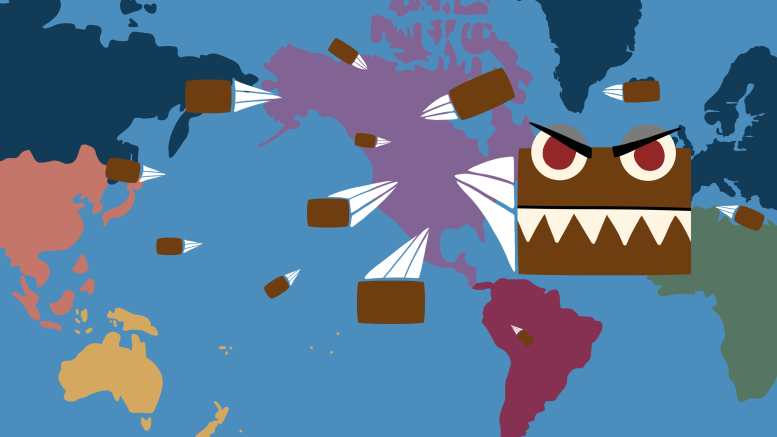Foreign aid, once seen as a beacon of hope for struggling nations, is facing scrutiny today as it perpetuates inequality and undermines economic growth in developing countries. There is a complex relationship between foreign aid and development, and it often serves Western interests while hindering progress in vulnerable African states and beyond.
Foreign aid has a long history, rooted in economic motivations. But today, it has taken on the form of neocolonialism. Instead of using direct military or political control, powerful nations employ globalization, capitalism and cultural influence to dominate and exploit weaker economies.
The dependency theory highlights how post-colonial states often accept Western conditions for loans and aid out of desperation, perpetuating their reliance on foreign assistance.
Financial institutions have become tools of neocolonialism, enabling a handful of powerful capitalist countries to exert control over weaker nations. They use foreign aid as a means of imposing economic pressure, political influence and cultural supremacy. As the line goes in the documentary Poverty Inc., “the reason there will be no change is because people who stand to lose from change have all the power and people who stand to gain from change have none of the power.”
During the 19th and early 20th centuries, European countries introduced tariffs to protect their markets and promote mass production in their countries.
Similarly, in neocolonialism, when these different organizations and governments bring in cheap foreign products or free products, it destroys local business and the state’s economy. Individuals do charitable work and inspire others to join them, while international organizations and non-governmental organizations (NGOs) contribute funds and resources with the noble intention of aiding national development. Although this comes from a good place, it does not work.
In Africa, foreign aid takes various forms, from project support to investment, but some view it as a means of exploitation. Aid is often seen as ineffective in alleviating poverty, which exists despite the continent’s rich resources, such as oil and diamonds. The debate over aid’s efficacy continues, as it exacerbates income inequality and hinders economic growth and fosters corruption.
After the 2010 earthquake in Haiti, the influx of NGOs and foreign assistance appeared to turn a short-term natural disaster into a long-term unnatural one. The organizations supplying free resources ultimately hurt Haiti’s economy, demonstrating the need to strike a balance between short-term relief and long-term development.
The influence of foreign aid on development is complex, shaped by ideologies promoted by entities like the World Bank and International Monetary Fund. These institutions often export neoliberalism, or the ideology that promotes free-market capitalism. These institutions perpetuate Western control over African development. In countries like Ghana, foreign aid has historically prioritized economic stability over labour interests, leading to economic imbalances.
The way states experience foreign aid varies, but common themes include volatility, unpredictability and difficulties in long-term planning. Donors often allocate aid according to their sectorial priorities, and these funds often come with conditions. The debate over foreign aid’s necessity continues, and alternatives to aid are explored. While NGOs have played a significant role in development, their shift toward charity and neoliberalism raises questions about their broader responsibilities and impact in Africa.
Promoting certain demographics of population as poor and malnourished through songs and media, the way some aid organizations do, contributes to damaging stereotypes about people. Celebrities and organizations are guilty of perpetuating this cycle, passing it down to the next generation. It’s crucial to note that there’s no conclusive evidence that any nation has thrived due to government aid and donations.
While foreign aid aims to enhance the lives of those in need, it frequently falls short, perpetuating neocolonialism and obstructing genuine development. The world must reconsider its approach to assisting developing countries, recognizing the necessity for a fundamental shift that ensures aid achieves its intended purpose without reinforcing negative stereotypes and dependencies.


